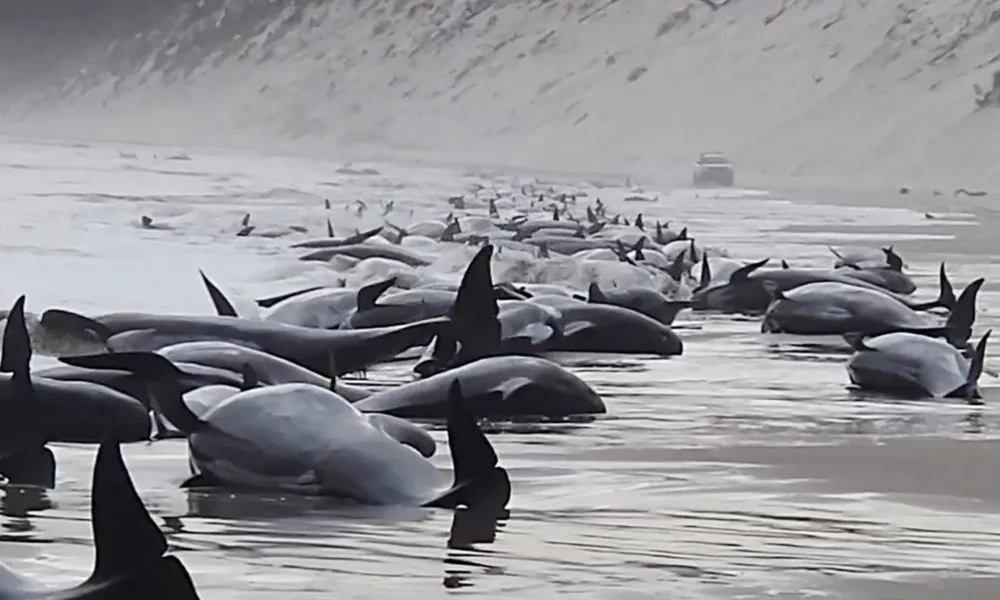In late September 2022, a pod of 230 pilot whales washed up onto the shores of Ocean Beach in Tasmania, Australia. Only half of those stranded were still alive when the response team arrived on the scene, and only 32 whales made it back into the water safely. The grim picture is sadly not uncommon: Mass whale strandings occur fairly regularly all over the world and have only increased due to human interference in marine systems.
So, what can McGill students do to raise awareness about whale strandings? Well, like any other topic, there’s a class for that. It’s called BIOL 335: Marine Mammals and if you’re curious about whales, seals, or dolphins and don’t suffer from too much seasickness, this is the class to take.
BIOL 335 is offered by McGill’s Department of Biology, but you don’t need to be a biology student to partake—having the necessary prerequisites and an interest in marine biology is sufficient. The class was most recently delivered over the course of two weeks at the Huntsman Institute in St. Andrews, New Brunswick in August 2022—its first offering since the COVID-19 pandemic. Amanda Babin, an environmental analyst at the Whale Sanctuary Project who received her PhD in biology from the University of New Brunswick, pulled from her experience with marine mammals and whale stranding response procedures to tell students about marine mammal physiology, behaviour, and current conservation efforts.
Over the course of two weeks, students learn about mass whale strandings and their causes, in addition to other topics such as evolution and marine species identification. A mass whale stranding occurs when any two beings that are not a mother and her calf become stranded on land. Both natural phenomena and human-caused disturbances can trigger strandings. It is not currently understood what happened in the case of the 230 pilot whales, but there is some speculation from experts.
“Pilot whales are very social animals,” Babin wrote in an email to The McGill Tribune. “They follow the leader, which is often an elder female that can sometimes go senile or be suffering from an illness. Once the leader strands, it is common for others to follow as they hear the distress calls and attempt to help [….] The pod could [also] have been disturbed in an area that is difficult to navigate.”
Disturbed areas can include fishing regions where whales become entangled in commercial fishing nets. This leads to injury, disorientation, and even drownings. Shipping also disturbs marine life because the noise pollution from massive ships can drown out marine mammals’ communication calls. As a result, whales can accidentally make errors while navigating and end up on land. These types of disturbances are avoidable when the appropriate measures are put in place.
“We often protect habitat that is used for feeding or breeding, but pay less attention to the migratory routes,” Babin wrote. “Migration is impacted by shipping, both direct[ly] through ship strikes and indirect[ly] through noise pollution.”
Some disturbances are more deadly than others: Many whales are hit and injured or killed by ships. This is called a ship strike and is a direct consequence of human activity in whale habitats. That being said, not all human intervention is necessarily bad for whales. Marine life responders are a vital asset to marine life conservation. In BIOL 335, students are taught about how to approach a beached whale.
“Response activities include triage, making the animals comfortable by digging out sand so their flippers can be in natural positions and keeping them wet, then attempting to re-float the animals,” Babin detailed. “The decision of which whales to try to rescue and in what order is important so that they don’t re-strand.”
If you come across a beached whale anytime soon, always call the appropriate marine response team, and don’t approach the animal yourself. In Quebec, you can call the Quebec Marine Mammal Emergency Response Network.






